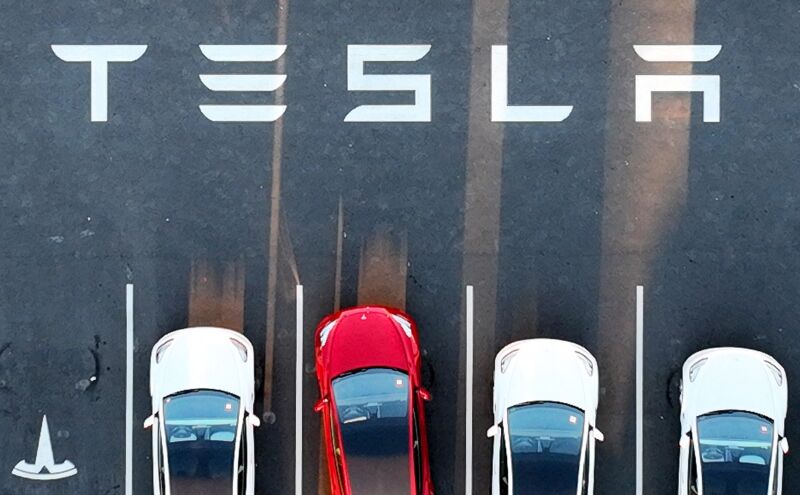
A class-action complaint alleges that Tesla and CEO Elon Musk repeatedly made false statements about the capabilities and safety of the electric carmaker's Autopilot and Full Self-Driving (FSD) technology.
The complaint, filed Monday in US District Court for the Northern District of California, comes less than two weeks after a recall of 362,758 cars based on a US government finding that Tesla's "FSD Beta system may allow the vehicle to act unsafe around intersections, such as traveling straight through an intersection while in a turn-only lane, entering a stop sign-controlled intersection without coming to a complete stop, or proceeding into an intersection during a steady yellow traffic signal without due caution." The problem is slated to be fixed by an over-the-air software update.
The lawsuit was filed by investor Thomas Lamontagne and seeks to represent a proposed class of potentially thousands of people who acquired Tesla stock. Tesla, Elon Musk, and other Tesla executives "made materially false and misleading statements regarding the Company's business, operations, and prospects," the lawsuit said, continuing:
Specifically, Defendants made false and/or misleading statements and/or failed to disclose that: (i) Defendants had significantly overstated the efficacy, viability, and safety of the Company's Autopilot and FSD technologies; (ii) contrary to Defendants' representations, Tesla's Autopilot and FSD technologies created a serious risk of accident and injury associated with the operation of Tesla vehicles; (iii) all the foregoing subjected Tesla to an increased risk of regulatory and governmental scrutiny and enforcement action, as well as reputational harm.
Stock sold for “artificially inflated prices”
The lawsuit says Lamontagne "acquired Tesla securities at artificially inflated prices during the Class Period and was damaged upon the revelation of the alleged corrective disclosures." The complaint cites several stock-price drops triggered by news about Tesla safety deficiencies and related investigations.
There were significant stock-price drops in April 2021, August 2021, June 2022, and January 2023 triggered by National Highway Traffic Safety Administration (NHTSA) and Securities and Exchange Commission (SEC) investigations, the lawsuit said. After each price decline, Tesla "stock continued to trade at artificially inflated prices throughout the remainder of the Class Period because of Defendants' continued misstatements and omissions regarding Tesla's Autopilot and FSD technologies," the lawsuit said.
The complaint says the "truth fully emerge[d]" earlier this month on news of the 362,758-vehicle recall. "As a result of Defendants' wrongful acts and omissions, and the precipitous decline in the market value of the Company's common stock, Plaintiff and other Class members have suffered significant losses and damages," the complaint said.
Tesla's stock price hit a peak of $409.97 in November 2021 but fell to $108.10 by January 3, 2023. The stock price has risen substantially in the eight weeks since then—despite a 5.7 percent drop right after this month's recall news—and ended today's trading at $205.71.
We emailed Tesla's media relations contact about the shareholder lawsuit today, but our message wasn't delivered because the "recipient's mailbox is full and can't accept messages now."
reader comments
147